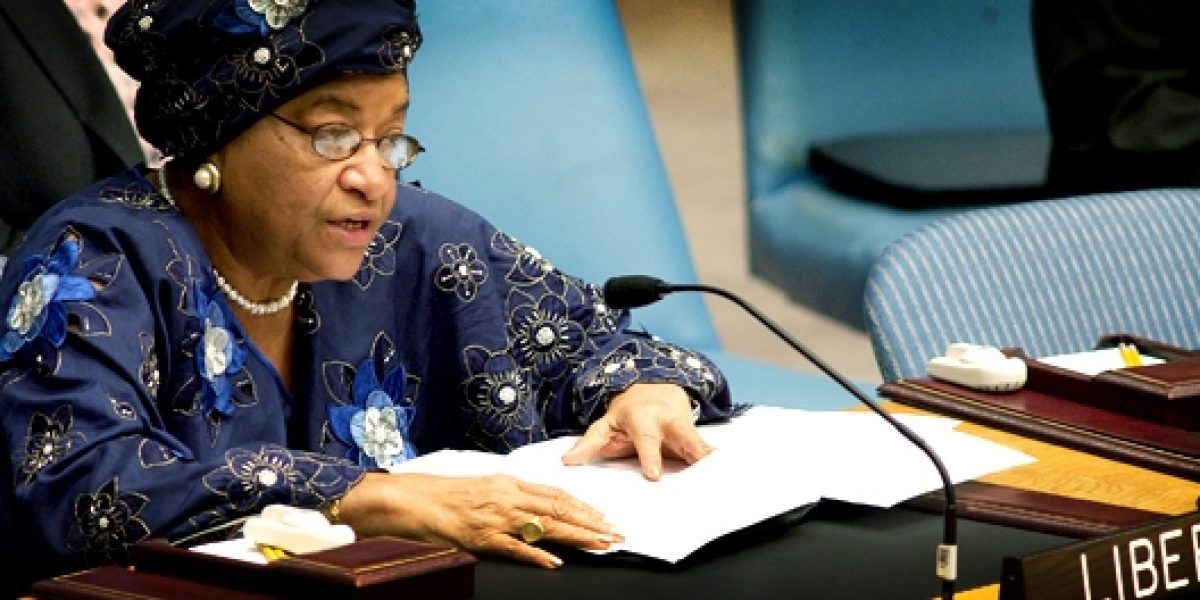Ellen Johnson Sirleaf, the president of Liberia, was appointed as the head of the Committee of Participating Heads of State and Government, commonly known as the APR Forum. She has previously demonstrated a strong commitment to democracy in her own country, which included campaigning against military rule throughout the 1980s to the early 2000s. Her strong pro-democracy stance is a positive signal for the APRM. Her election also sends a strong message of commitment to gender balance on the continent, following in the footsteps of Nkosazana Dlamini-Zuma’s appointment as the AU Commission’s first female head in July 2012.
The APR Forum is the highest decision-making authority in the APRM. It consists of the African Heads of State, who have acceded to the mechanism, and assumes the overall responsibility for the ‘peer-review’ process. The APR Forum is required to facilitate ‘peer-learning’, create constructive dialogue between member states and ensure the APRM’s credibility. It currently struggles with a number of challenges.
These include delegation of authority by Heads of State to their Focal Point Ministers, who do not carry the same political weight; low attendance of meetings and poor institutional memory. Another challenge is the departure of key champions of the APRM from high office, such as former Presidents of South Africa and Nigeria, Thabo Mbeki and Olusegun Obasanjo. However, the main criticism levelled at the APR Forum by civil society is the lacklustre performance of its main function – to ‘peer review.’
Discussions around the findings of country review reports (CRRs) are supposed to be in-depth assessments of governance issues in a country. However, in practice the process tends to be short, and the feedback general and overwhelmingly positive, rather than balanced. According to research previously conducted by SAIIA, the reviews of Kenya and Rwanda took a mere two hours each. Judging by official statements from the APR Forum meetings, the reviews tend to praise countries for their achievements, rather than highlighting governance deficiencies and a way forward on how to address them.
Furthermore, official APRM rules and processes have provisions for non-compliance with recommendations. The APR Forum and its members may thus put governments on notice of their intention to proceed with appropriate measures in the case of non-compliance. Yet such measures have never been introduced. This inaction had dire consequences in Kenya in the form of post-electoral violence and violent incidences of xenophobia in South Africa. The high probability of both occurring was flagged in their respective APRM reports. It is hoped that President Johnson Sirleaf will provide the kind of leadership that ensures that crucial APRM recommendations are taken on board by heads of state and their governments.
The other major leadership change of the APRM structures took place at the level of the APR Panel of Eminent Persons, commonly referred to as the APR Panel. This body is responsible for the individual country reviews of member states. Its specific tasks include overseeing the process and ensuring its integrity. It also considers the country reports and puts forth recommendations to the APR Forum. According to official APRM documentation, the APR Panel needs to comprise of five to seven ‘Africans who have distinguished themselves in careers that are considered relevant to the work of the APRM’. However, for a number of years, it had only four members. This placed an unreasonable strain on its members to perform their tasks. The past year has brought about some relief as five more members have been appointed, with an expectation of a tenth member joining the Panel in 2014.
The Panel will now be headed by Barrister Akere Muna, a lawyer from Cameroon. He is currently also the president of the African Bar Association and the vice-chair of Transparency International. Barrister Muna replaces Ellen Johnson Sirleaf’s compatriot, Dr Amos Sawyer, who headed the APR Panel for just over a year. The change in leadership could possibly be ascribed to a desire to ensure that no single country has undue influence over the APRM process.
Although the APRM is celebrating its tenth anniversary, there is certainly a feeling that the mechanism has not yet lived up to its full potential. While CRRs have been comprehensive and frank, there is not enough sharing of best practices and lessons learned. The element of ‘peer review’ and particularly ‘peer pressure’ at the APR Forum is also lacking. Finally, many states lag behind in implementing their National Programmes of Action, which are commitments towards addressing governance concerns identified in the reviews.
However, in spite of these challenges, the APRM remains the continent’s premier tool for improving governance, both individually and collectively. The new leadership of the APR Forum and the APR Panel will hopefully introduce new vigour in the mechanism thereby ensuring that its effectiveness in promoting good governance in Africa is improved. Their credentials certainly inspire hope that this will be the case.







